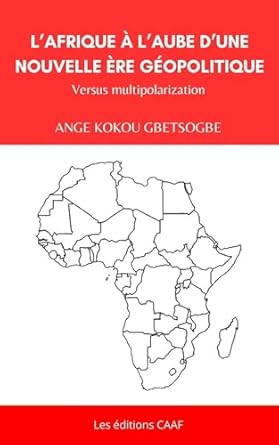The author maps the convergent and divergent dynamics driving African nation-states, which strive to settle the legacy of colonization, consolidate their access to independence, gain full sovereignty, and influence the balance of power between continents. But their efforts are faced with multiple obstacles, ethnic, economic and geopolitical. Africa is the richest of all continents, both in terms of its raw material resources, its youth, its ethnic groups (more than 2000), its social structures and its cultures. That is why it has always aroused the envy of Western countries and, more recently, of China. Today, it is causing more and more rivalries between these countries. Most African states are trying to free themselves from neo-colonialism, sometimes through violence, to fall back into new forms of dependence, especially from China and Russia, but also from the former colonizing countries. African governments are looking for new types of alliances, cooperation and investment, based on more balanced exchanges. Their priorities are most often the development of education and infrastructure. But still too many states are victims of political instability, precarious institutions, social inequalities, and lack of funding.
Like most young African authors today (1), Ange Kokou GBETSOGBE wonders how to ensure more stable, inclusive, and transparent governance, better regional integration, and a stimulating dynamic, especially for young people.
Ange Kokou GBETSOGBE is a Legal Consultant, a specialist in public business law, and president of the CAAF, which promotes the development of Africa.
Jean-Jacques Puchart
(1) See the works reviewed on clubturgot.com


